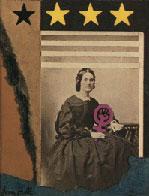
Duke University’s Sallie Bingham Center is an invaluable resource for studying the life and culture of American women. While the collection covers a broad range of topics on all aspects of women’s history, its strength is in Southern women and there are a great deal of resources pertaining specifically to the 19th century. This page features an extensive list of the primary sources that the collection has relating to domestic and social life in the 19th century. Any one of these collections of family correspondence and diary entries could be useful in understanding the cultural and domestic context to the Civil War, but many have not yet been archived online. The resources that can be accessed online now are found here. Other collections relating explicitly to the Civil War period can be found on the subject guides page. Hopefully the Center will continue to provide more digital resources so that the documents in this collection can be accessed by a wider audience.

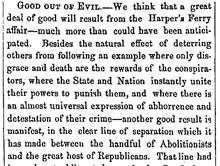

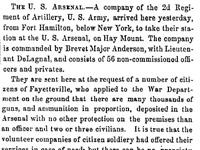
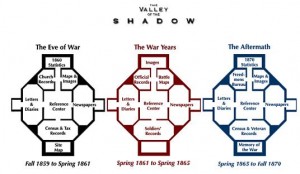
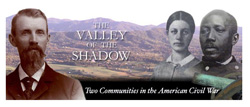
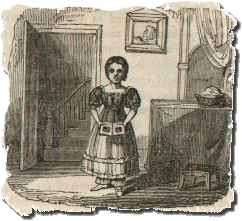 Understanding family life in the 19th century necessitates a look at what was popular with children at the time.
Understanding family life in the 19th century necessitates a look at what was popular with children at the time.  A number of organizations in West Virginia, Pennsylvania, Virginia and Maryland have organized events for the sesquicentennial anniversary of John Brown’s raid on Harpers Ferry. These include the
A number of organizations in West Virginia, Pennsylvania, Virginia and Maryland have organized events for the sesquicentennial anniversary of John Brown’s raid on Harpers Ferry. These include the 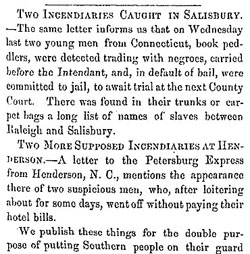 The South’s reaction to John Brown’s attack is often characterized as a violent one. “The shock and fear John Brown had instigated fueled widespread panic…[that] fed into paranoia vented in aggressive acts,” as historian David Reynolds explains. Yet not all southerners accepted violent actions. Protecting their communities remained a high priority, but these southerners argued that extralegal means should not be employed. Not only were existing laws more than sufficient, but violent actions impugned southern honor. Someone who “was tarred and feathered” “for sympathsing [sic] with old Brown” may have “richly deserved his punishment,” but the
The South’s reaction to John Brown’s attack is often characterized as a violent one. “The shock and fear John Brown had instigated fueled widespread panic…[that] fed into paranoia vented in aggressive acts,” as historian David Reynolds explains. Yet not all southerners accepted violent actions. Protecting their communities remained a high priority, but these southerners argued that extralegal means should not be employed. Not only were existing laws more than sufficient, but violent actions impugned southern honor. Someone who “was tarred and feathered” “for sympathsing [sic] with old Brown” may have “richly deserved his punishment,” but the 






